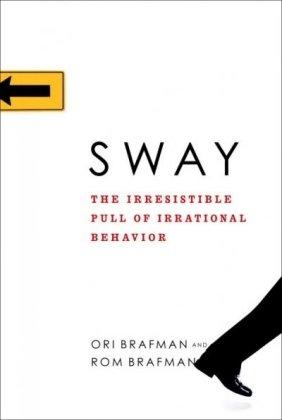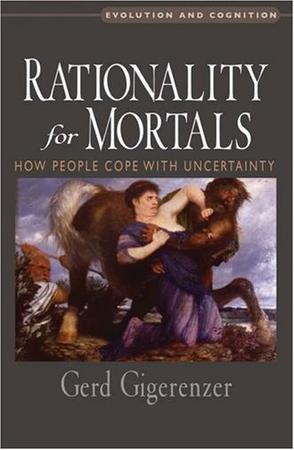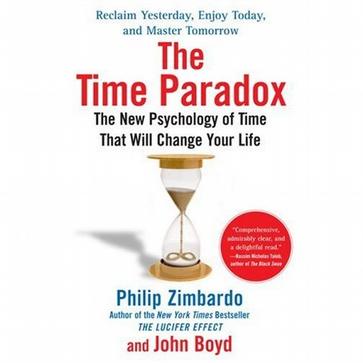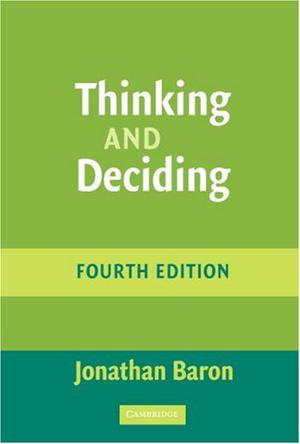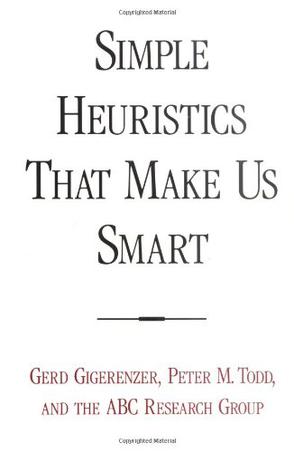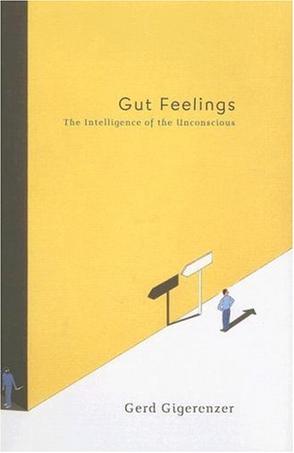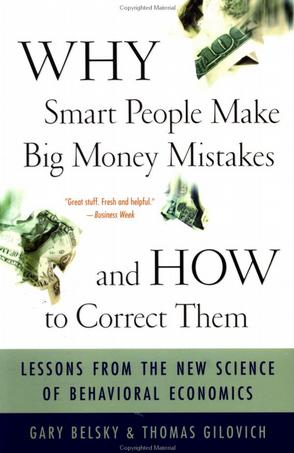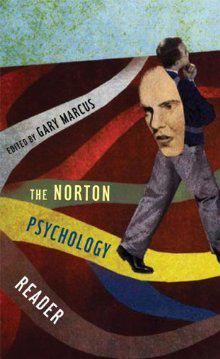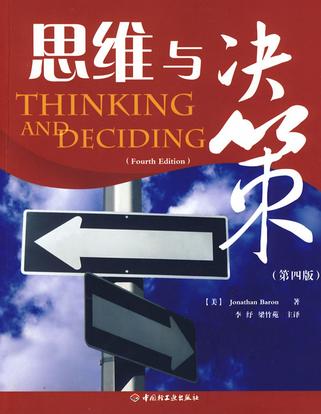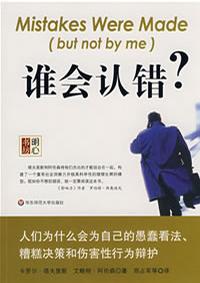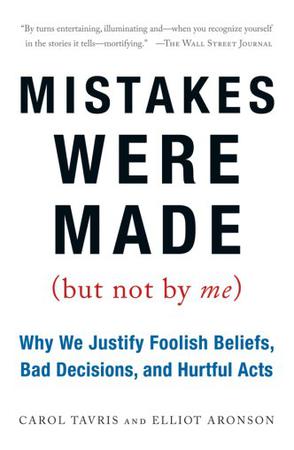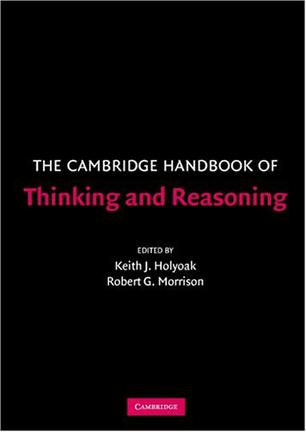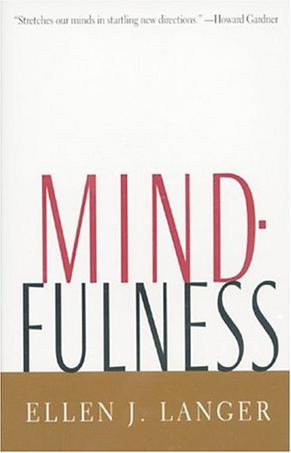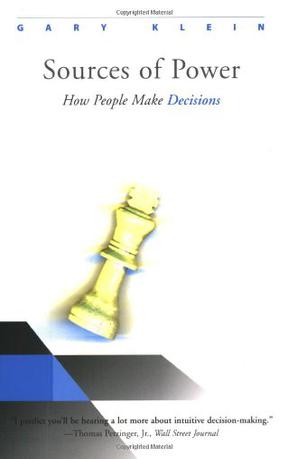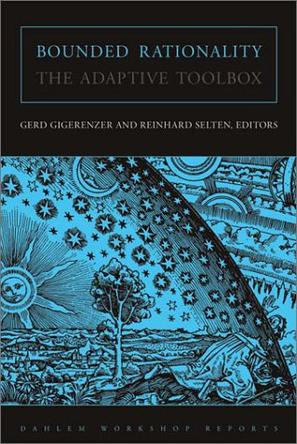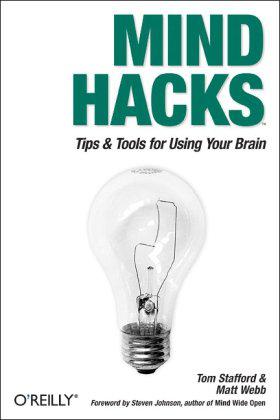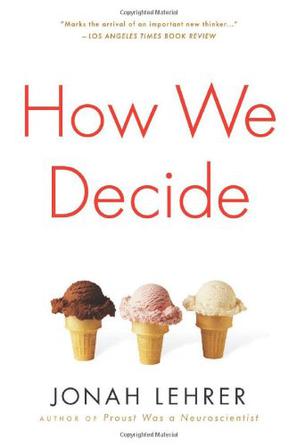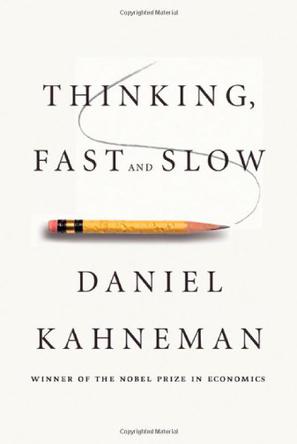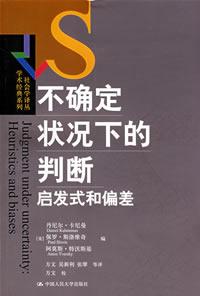欢迎来到相识电子书!
标签:判断与决策
-
Sway
A fascinating journey into the hidden psychological influences that derail our decision-making, Sway will change the way you think about the way you think. Why is it so difficult to sell a plummeting stock or end a doomed relationship? Why do we listen to advice just because it came from someone “important”? Why are we more likely to fall in love when there’s danger involved? In Sway , renowned organizational thinker Ori Brafman and his brother, psychologist Rom Brafman, answer all these questions and more. Drawing on cutting-edge research from the fields of social psychology, behavioral economics, and organizational behavior, Sway reveals dynamic forces that influence every aspect of our personal and business lives, including loss aversion (our tendency to go to great lengths to avoid perceived losses), the diagnosis bias (our inability to reevaluate our initial diagnosis of a person or situation), and the “chameleon effect” (our tendency to take on characteristics that have been arbitrarily assigned to us). Sway introduces us to the Harvard Business School professor who got his students to pay $204 for a $20 bill, the head of airline safety whose disregard for his years of training led to the transformation of an entire industry, and the football coach who turned conventional strategy on its head to lead his team to victory. We also learn the curse of the NBA draft, discover why interviews are a terrible way to gauge future job performance, and go inside a session with the Supreme Court to see how the world’s most powerful justices avoid the dangers of group dynamics. Every once in a while, a book comes along that not only challenges our views of the world but changes the way we think. In Sway, Ori and Rom Brafman not only uncover rational explanations for a wide variety of irrational behaviors but also point readers toward ways to avoid succumbing to their pull. -
Rationality for Mortals
Gerd Gigerenzer's influential work examines the rationality of individuals not from the perspective of logic or probability, but from the point of view of adaptation to the real world of human behavior and interaction with the environment. Seen from this perspective, human behavior is more rational than it might otherwise appear. This work is extremely influential and has spawned an entire research program. This volume (which follows on a previous collection, Adaptive Thinking, also published by OUP) collects his most recent articles, looking at how people use "fast and frugal heuristics" to calculate probability and risk and make decisions. It includes a newly writen, substantial introduction, and the articles have been revised and updated where appropriate. This volume should appeal, like the earlier volumes, to a broad mixture of cognitive psychologists, philosophers, economists, and others who study decision making. -
The Time Paradox
From Publishers Weekly Time is our most valuable possession: we are obsessed with schedules and multitasking to save time, say the authors of this insightful study of the importance of time in our lives. Yet people spend time less wisely than money. Zimbardo (The Lucifer Effect), professor emeritus of psychology at Stanford, and Boyd, research director for Yahoo!, draw on their two decades of research to explain why people devalue time. They blend scientific results into a straightforward narrative exploring various past-, present- and future-oriented ways of perceiving time and argue against becoming imprisoned or obsessed by any one of these. Zimbardo and Boyd have cogent insight into all of time's elements and show how they can be used for success, better health and greater fulfillment. For instance, understanding the role of time in investment can lead to wiser financial decisions, and a relationship will not work if one partner is focused on today's pleasure while the other wants to plan for the future. This is a compelling and practical primer (filled with quizzes and tests) on making every moment count. (Aug. 5) Review "If you are a decision maker, then you need to read this book. It informs about the central problem of how to discriminate between immediate rewards and future payoffs. The Time Paradox is comprehensive, admirably clear, and a delightful read."-- Nassim Nicholas Taleb, author of The Black Swan "The Time Paradox explores a very important topic from a fresh, practical, and entertaining perspective. Since time is limited for all of us, this book is well worth your time."-- Daniel Amen, M.D., author of Change Your Brain, Change Your Life and Healing the Hardware of Your Soul "The Time Paradox reveals how to better use your most irreplaceable resource, based on solid science and timeless wisdom."-- Martin Seligman, author of Authentic Happiness "Informed by the world's foremost expert on the psychology of time, The Time Paradox combines solid science, compelling stories, and crisp prose to illuminate how time, like the oxygen we breathe, pervades every aspect of our lives. Reading this book will yield insights into your own motivation and behavior and help you be happier, healthier, and more successful. It will also help you understand the source of many of the world's greatest triumphs and most pressing problems -- from terrorism to homelessness, from religion to love, from the successes and failures of CEOs to those of marriages. Zimbardo and Boyd have hit a home run."-- Sonja Lyubomirsky, author of The How of Happiness "Phil Zimbardo, a master at making complex ideas and discoveries in psychology, including his own, not only intelligible but fun and personally relevant for nonspecialists, has done it again, this time with the fascinating topic of time perspective. Bravo!"-- Walter Mischel, Ph.D., Columbia University Niven Professor of Humane Letters in Psychology -
Thinking and Deciding
Beginning with its first edition and through subsequent editions, Thinking and Deciding has established itself as the required text and important reference work for students and scholars of human cognition and rationality. In this, the fourth edition, Jonathan Baron retains the comprehensive attention to the key questions addressed in the previous editions - How should we think? What, if anything, keeps us from thinking that way? How can we improve our thinking and decision making? - and his expanded treatment of topics such as risk, utilitarianism, Baye's theorem, and moral thinking. With the student in mind, the fourth edition emphasises the development of an understanding of the fundamental concepts in judgement and decision making. This book is essential reading for students and scholars in judgement and decision making and related fields, including psychology, economics, law, medicine, and business. -
Simple Heuristics That Make Us Smart
Simple Heuristics That Make Us Smart invites readers to embark on a new journey into a land of rationality that differs from the familiar territory of cognitive science and economics. Traditional views of rationality tend to see decision makers as possessing superhuman powers of reason, limitless knowledge, and all of eternity in which to ponder choices. To understand decisions in the real world, we need a different, more psychologically plausible notion of rationality, and this book provides it. It is about fast and frugal heuristics--simple rules for making decisions when time is pressing and deep thought an unaffordable luxury. These heuristics can enable both living organisms and artificial systems to make smart choices, classifications, and predictions by employing bounded rationality. But when and how can such fast and frugal heuristics work? Can judgments based simply on one good reason be as accurate as those based on many reasons? Could less knowledge even lead to systematically better predictions than more knowledge? Simple Heuristics explores these questions, developing computational models of heuristics and testing them through experiments and analyses. It shows how fast and frugal heuristics can produce adaptive decisions in situations as varied as choosing a mate, dividing resources among offspring, predicting high school drop out rates, and playing the stock market. As an interdisciplinary work that is both useful and engaging, this book will appeal to a wide audience. It is ideal for researchers in cognitive psychology, evolutionary psychology, and cognitive science, as well as in economics and artificial intelligence. It will also inspire anyone interested in simply making good decisions. -
Gut Feelings
Why is split second decision-making superior to deliberation? Gut Feelings delivers the science behind Malcolm Gladwell??s Blink Reflection and reason are overrated, according to renowned psychologist Gerd Gigerenzer. Much better qualified to help us make decisions is the cognitive, emotional, and social repertoire we call intuition??a suite of gut feelings that have evolved over the millennia specifically for making decisions. ??Gladwell drew heavily on Gigerenzer??s research. But Gigerenzer goes a step further by explaining just why our gut instincts are so often right. Intuition, it seems, is not some sort of mystical chemical reaction but a neurologically based behavior that evolved to ensure that we humans respond quickly when faced with a dilemma?? (BusinessWeek). -
Why Smart People Make Big Money Mistakes and How to Correct Them
Offers financial advice. -
The Norton Psychology Reader
If you’ve ever wondered about the mind and behavior, the Norton Psychology Reader is the perfect place to start. From the biological basis of emotion to the psychological basis of culture, from the nature of nurture to the nature of intelligence, with selections by leading scientists with a knack for writing—including Steven Pinker, Joseph Ledoux, Antonio Damasio, Oliver Sacks, and Robert Sapolsky—and top-notch journalists with an uncanny sense for psychology—including Natalie Angier, Daniel Goleman, and Sylvia Nasar—the Norton Psychology Reader presents the best that psychology has to offer. Edited by noted New York University psychologist Gary Marcus, the Norton Psychology Reader is an unparalleled guided tour through the modern science of the human mind and a perfect companion to any introductory psychology course, filled with insights completely accessible to the interested lay reader. -
思维与决策(第四版)
决策是对行为的选择——选择做什么或者不做什么。是人类的高级认知活动之一。决策科学是一个多学科交叉领域.已有百年的历史。涉及心理学、经济学、计算机科学、法律、医学、政治学、哲学等学科,并对会计、金融、市场营销、组织管理等应用领域产生了重要和深远的影响。人类如何进行思维、决策和判断,如何解决问题和制定政策,诺贝尔奖得主赫伯特·西蒙(Herbert A. Simon)、丹尼尔·卡尼曼(Daniel Kahneman)等心理学家们对此方面的研究做出了卓越的贡献。 《思维与决策(第四版)》作者Jonathan Baron教授是美国判断与决策学会(Society for Judgment and Decision Making)主席,他在书中全面和专业地介绍了思维与决策领域的理论、研究、应用的现状,让读者窥见该领域的发展全貌,其独到之处在于:从学科形成发展的角度梳理了思维、判断与决策领域研究的脉络较为充分和系统地体现了思维与决策领域中的核心概念,及其在多个相关学科中的实际应用;从规范性、描述性和指导性三个层面分析决策问题的思路贯穿全书,密切联系实际。因此,《思维与决策(第四版)》不仅仅是对思维与决策研究的发展介绍_蔓是改善自己的思维与决策的实用指南。希望有心的读者读完此书,能明白自己这辈子是遵循何种规则来做出林林总总的决策。 -
谁会认错
《谁会认错?》这本极具洞察力和吸引力的著作,著名社会心理学家卡罗尔·塔夫里斯和艾略特·阿伦森深入探讨了人类大脑是如何进行自我辩护的。每当犯下错误的时候,我们一定会消除那些动摇自我价值感的认知失调。我们会任凭自己的头脑虚构出免除责任的种种理由,不断强化自己聪明、有德行、不会犯错的信念,而这种信念却恰恰令我们变得愚蠢、没有德行、错误不断。 当事情陷入僵局的时候,人们为什么会推卸责任?为什么会有如此之多的公众人物在事情搞砸时不能坦然面对?为什么难以计数的夫妻总是为孰是孰非争来争去?为什么我们总是看到他人的虚伪,而不去反顾自身?难道说我们都是骗子吗?或者说,我们都对自己所说出的话信以为真吗? -
Mistakes Were Made
Why do people dodge responsibility when things fall apart? Why the parade of public figures unable to own up when they make mistakes? Why the endless marital quarrels over who is right? Why can we see hypocrisy in others but not in ourselves? Are we all liars? Or do we really believe the stories we tell? Renowned social psychologists Carol Tavris and Elliot Aronson take a compelling look into how the brain is wired for self-justification. When we make mistakes, we must calm the cognitive dissonance that jars our feelings of self-worth. And so we create fictions that absolve us of responsibility, restoring our belief that we are smart, moral, and right - a belief that often keeps us on a course that is dumb, immoral, and wrong. Backed by years of research and delivered in lively, energetic prose, "Mistakes Were Made (But Not by Me)" offers a fascinating explanation of self-deception - how it works, the harm it can cause, and how we can overcome it. -
The Cambridge Handbook of Thinking and Reasoning
Written by foremost authorities from cognitive psychology, cognitive science, and cognitive neuroscience, the chapters of this reference summarize basic concepts and facts of a major topic, sketch its history, and analyze the progress its research is currently making. The volume also includes work related to developmental, social and clinical psychology, philosophy, economics, artificial intelligence, linguistics, education, law, and medicine. The Cambridge Handbook of Thinking and Reasoning comprises the first comprehensive and authoritative handbook for all core topics within the fields of thinking and reasoning. -
Mindfulness
From Publishers Weekly The mindless following of routine and other automatic behaviors lead to much error, pain and a predetermined course of life, contends Langer, Harvard professor of psychology, in this thought-provoking study in which she "translates" for lay readers the findings of her research, much of it among the elderly. With anecdotes and metaphors, she explains how the mindless--as opposed to the mindful--develop mindsets of categories, associations, habits of thought born of repetition in childhood and throughout schooling. To be mindful, she notes, stressing process over outcome, allows free rein to intuition and creativity, and opens us to new information and perspectives. Langer discusses the negative impact of mindsets on business and social relations, showing special concern for the elderly, who often suffer from learned helplessness and lack of options. Encouraging the application of mindfulness to health, the author affirms that placebos and alternative, mind-based therapies can help patients and addicts move from unhealthy to healthy contexts. First serial to Health magazine; QPBC, Library of Science, Behavioral Science, Natural Science and Psychotherapy and Social Science Book Clubs selections. Copyright 1989 Reed Business Information, Inc. --This text refers to an out of print or unavailable edition of this title. Product Description "A landmark work of social psychology" (Booklist) now in paperback at a popular price. " . . . Harvard psychology professor Langer seeks to dramatize the rigid conditions and mindsets that often produce a pervasive state of automatized stupidity . . . (and) proposes a life-enhancing alternative."--Kirkus Reviews. -
Sources of Power
Anyone who watches the television news has seen images of firefighters rescuing people from burning buildings and paramedics treating bombing victims. How do these individuals make the split-second decisions that save lives? Most studies of decision making, based on artificial tasks assigned in laboratory settings, view people as biased and unskilled. Gary Klein is one of the developers of the naturalistic decision making approach, which views people as inherently skilled and experienced. It documents human strengths and capabilities that so far have been downplayed or ignored.Since 1985, Klein has conducted fieldwork to find out how people tackle challenges in difficult, nonroutine situations. Sources of Power is based on observations of humans acting under such real-life constraints as time pressure, high stakes, personal responsibility, and shifting conditions. The professionals studied include firefighters, critical care nurses, pilots, nuclear power plant operators, battle planners, and chess masters. Each chapter builds on key incidents and examples to make the description of the methodology and phenomena more vivid. In addition to providing information that can be used by professionals in management, psychology, engineering, and other fields, the book presents an overview of the research approach of naturalistic decision making and expands our knowledge of the strengths people bring to difficult tasks. -
Bounded Rationality
In a complex and uncertain world, humans and animals make decisions under the constraints of limited knowledge, resources, and time. Yet models of rational decision making in economics, cognitive science, biology, and other fields largely ignore these real constraints and instead assume agents with perfect information and unlimited time. About forty years ago, Herbert Simon challenged this view with his notion of "bounded rationality." Today, bounded rationality has become a fashionable term used for disparate views of reasoning. This book promotes bounded rationality as the key to understanding how real people make decisions. Using the concept of an "adaptive toolbox," a repertoire of fast and frugal rules for decision making under uncertainty, it attempts to impose more order and coherence on the idea of bounded rationality. The contributors view bounded rationality neither as optimization under constraints nor as the study of people?s reasoning fallacies. The strategies in the adaptive toolbox dispense with optimization and, for the most part, with calculations of probabilities and utilities. The book extends the concept of bounded rationality from cognitive tools to emotions; it analyzes social norms, imitation, and other cultural tools as rational strategies; and it shows how smart heuristics can exploit the structure of environments. -
Mind Hacks
This exploration into the moment-by-moment works of the brain uses cognitive neuroscience to present experiments, tricks, and tips related to vision, motor skills, attention, cognition, subliminal perception. Each "hack" examines specific operations of the brain. By seeing how the brain responds, you'll learn more about how the brain is put together. If you want to find out what's going on in your head, then Mind Hacks is the key. -
How We Decide
Product Description The first book to use the unexpected discoveries of neuroscience to help us make the best decisions. Since Plato, philosophers have described the decision-making process as either rational or emotional: we carefully deliberate, or we blink and go with our gut. But as scientists break open the mind's black box with the latest tools of neuroscience, they re discovering that this is not how the mind works. Our best decisions are a finely tuned blend of both feeling and reason and the precise mix depends on the situation. When buying a house, for example, it s best to let our unconscious mull over the many variables. But when we re picking a stock, intuition often leads us astray. The trick is to determine when to use the different parts of the brain, and to do this, we need to think harder (and smarter) about how we think. Jonah Lehrer arms us with the tools we need, drawing on cutting-edge research as well as the real-world experiences of a wide range of deciders from airplane pilots and hedge fund investors to serial killers and poker players. Lehrer shows how people are taking advantage of the new science to make better television shows, win more football games, and improve military intelligence. His goal is to answer two questions that are of interest to just about anyone, from CEOs to firefighters: How does the human mind make decisions? And how can we make those decisions better? -
Thinking, Fast and Slow
Major New York Times bestseller Winner of the National Academy of Sciences Best Book Award in 2012 Selected by the New York Times Book Review as one of the best books of 2011 A Globe and Mail Best Books of the Year 2011 Title One of The Economist’s 2011 Books of the Year One of The Wall Street Journal's Best Nonfiction Books of the Year 2011 In the international bestseller, Thinking, Fast and Slow, Daniel Kahneman, the renowned psychologist and winner of the Nobel Prize in Economics, takes us on a groundbreaking tour of the mind and explains the two systems that drive the way we think. System 1 is fast, intuitive, and emotional; System 2 is slower, more deliberative, and more logical. The impact of overconfidence on corporate strategies, the difficulties of predicting what will make us happy in the future, the profound effect of cognitive biases on everything from playing the stock market to planning our next vacation—each of these can be understood only by knowing how the two systems shape our judgments and decisions. Engaging the reader in a lively conversation about how we think, Kahneman reveals where we can and cannot trust our intuitions and how we can tap into the benefits of slow thinking. He offers practical and enlightening insights into how choices are made in both our business and our personal lives—and how we can use different techniques to guard against the mental glitches that often get us into trouble. Winner of the National Academy of Sciences Best Book Award and the Los Angeles Times Book Prize and selected by The New York Times Book Review as one of the ten best books of 2011, Thinking, Fast and Slow is destined to be a classic. One of the New York Times Book Review's Top 10 Books of 2011 Editorial Reviews Amazon.com Review Amazon Best Books of the Month, November 2011: Drawing on decades of research in psychology that resulted in a Nobel Prize in Economic Sciences, Daniel Kahneman takes readers on an exploration of what influences thought example by example, sometimes with unlikely word pairs like "vomit and banana." System 1 and System 2, the fast and slow types of thinking, become characters that illustrate the psychology behind things we think we understand but really don't, such as intuition. Kahneman's transparent and careful treatment of his subject has the potential to change how we think, not just about thinking, but about how we live our lives. Thinking, Fast and Slow gives deep--and sometimes frightening--insight about what goes on inside our heads: the psychological basis for reactions, judgments, recognition, choices, conclusions, and much more. --JoVon Sotak Review “A tour de force. . . Kahneman’s book is a must read for anyone interested in either human behavior or investing. He clearly shows that while we like to think of ourselves as rational in our decision making, the truth is we are subject to many biases. At least being aware of them will give you a better chance of avoiding them, or at least making fewer of them.”—Larry Swedroe, CBS News “Daniel Kahneman demonstrates forcefully in his new book, Thinking, Fast and Slow, how easy it is for humans to swerve away from rationality.”—Christopher Shea, The Washington Post “An outstanding book, distinguished by beauty and clarity of detail, precision of presentation and gentleness of manner. Its truths are open to all those whose System 2 is not completely defunct. I have hardly touched on its richness.”— Galen Strawson, The Guardian “Brilliant . . . It is impossible to exaggerate the importance of Daniel Kahneman’s contribution to the understanding of the way we think and choose. He stands among the giants, a weaver of the threads of Charles Darwin, Adam Smith and Sigmund Freud. Arguably the most important psychologist in history, Kahneman has reshaped cognitive psychology, the analysis of rationality and reason, the understanding of risk and the study of happiness and well-being . . . A magisterial work, stunning in its ambition, infused with knowledge, laced with wisdom, informed by modesty and deeply humane. If you can read only one book this year, read this one.”— Janice Gross Stein, The Globe and Mail “A sweeping, compelling tale of just how easily our brains are bamboozled, bringing in both his own research and that of numerous psychologists, economists, and other experts...Kahneman has a remarkable ability to take decades worth of research and distill from it what would be important and interesting for a lay audience...Thinking, Fast and Slow is an immensely important book. Many science books are uneven, with a useful or interesting chapter too often followed by a dull one. Not so here. With rare exceptions, the entire span of this weighty book is fascinating and applicable to day-to-day life. Everyone should read Thinking, Fast and Slow.” —Jesse Singal, Boston Globe “We must be grateful to Kahneman for giving us in this book a joyful understanding of the practical side of our personalities.” —Freeman Dyson, The New York Review of Books “Brilliant . . . It is impossible to exaggerate the importance of Daniel Kahneman’s contribution to the understanding of the way we think and choose. He stands among the giants, a weaver of the threads of Charles Darwin, Adam Smith and Sigmund Freud. Arguably the most important psychologist in history, Kahneman has reshaped cognitive psychology, the analysis of rationality and reason, the understanding of risk and the study of happiness and well-being . . . A magisterial work, stunning in its ambition, infused with knowledge, laced with wisdom, informed by modesty and deeply humane. If you can read only one book this year, read this one.” — Janice Gross Stein, The Globe and Mail “It is an astonishingly rich book: lucid, profound, full of intellectual surprises and self-help value. It is consistently entertaining and frequently touching, especially when Kahneman is recounting his collaboration with Tversky . . . So impressive is its vision of flawed human reason that the New York Times columnist David Brooks recently declared that Kahneman and Tversky’s work ‘will be remembered hundreds of years from now,’ and that it is ‘a crucial pivot point in the way we see ourselves.’ They are, Brooks said, ‘like the Lewis and Clark of the mind’ . . . By the time I got to the end of Thinking, Fast and Slow, my skeptical frown had long since given way to a grin of intellectual satisfaction. Appraising the book by the peak-end rule, I overconfidently urge everyone to buy and read it. But for those who are merely interested in Kahenman’s takeaway on the Malcolm Gladwell question it is this: If you've had 10,000 hours of training in a predictable, rapid-feedback environment—chess, firefighting, anesthesiology—then blink. In all other cases, think.”—The New York Times Book Review “Ask around and you hear pretty much the same thing. 'Kahneman is the most influential psychologist since Sigmund Freud,' says Christopher Chabris, a professor of psychology at Union College, in New York. 'No one else has had such a broad impact on so many fields' . . . It now seems inevitable that Kahneman, who made his reputation by ignoring or defying conventional wisdom, is about to be anointed the intellectual guru of our economically irrational times.”— Evan R. Goldstein, The Chronicle of Higher Education “There have been many good books on human rationality and irrationality, but only one masterpiece. That masterpiece is Daniel Kahneman’s Thinking, Fast and Slow . . . This is one of the greatest and most engaging collections of insights into the human mind I have read.”—William Easterly, Financial Times “[Thinking, Fast and Slow] is wonderful, of course. To anyone with the slightest interest in the workings of his own mind, it is so rich and fascinating that any summary would seem absurd.”— Michael Lewis, Vanity Fair “Absorbingly articulate and infinitely intelligent . . . What's most enjoyable and compelling about Thinking, Fast and Slow is that it's so utterly, refreshingly anti-Gladwellian. There is nothing pop about Kahneman's psychology, no formulaic story arc, no beating you over the head with an artificial, buzzword-encrusted Big Idea. It's just the wisdom that comes from five decades of honest, rigorous scientific work, delivered humbly yet brilliantly, in a way that will forever change the way you think about thinking.”—Maria Popova, The Atlantic “I will never think about thinking quite the same. [Thinking, Fast and Slow] is a monumental achievement.”—Roger Lowenstein, Bloomberg/Businessweek “Profound . . . As Copernicus removed the Earth from the centre of the universe and Darwin knocked humans off their biological perch, Mr. Kahneman has shown that we are not the paragons of reason we assume ourselves to be.” —The Economist “[Kahneman’s] disarmingly simple experiments have profoundly changed the way that we think about thinking . . . We like to see ourselves as a Promethean species, uniquely endowed with the gift of reason. But Mr. Kahneman’s simple experiments reveal a very different mind, stuffed full of habits that, in most situations, lead us astray.” —Jonah Lehrer, The Wall Street Journal “[A] tour de force of psychological insight, research explication and compelling narrative that brings together in one volume the high points of Mr. Kahneman's notable contributions, over five decades, to the study of human judgment, decision-making and choice . . . Thanks to the elegance and force of his ideas, and the robustness of the evidence he offers for them, he has helped us to a new understanding of our divided minds—and our whole selves.” —Christoper F. Chabris, The Wall Street Journal “The ramifications of Kahenman’s work are wide, extending into education, business, marketing, politics . . . and even happiness research. Call his field “psychonomics,” the hidden reasoning behind our choices. Thinking, Fast and Slow is essential reading for anyone with a mind.” —Kyle Smith, The New York Post “A major intellectual event . . . The work of Kahneman and Tversky was a crucial pivot point in the way we see ourselves.” —David Brooks, The New York Times “Kahneman provides a detailed, yet accessible, description of the psychological mechanisms involved in making decisions.” —Jacek Debiec, Nature “With Kahneman’s expert help, readers may understand this mix of psychology and economics better than most accountants, therapists, or elected representatives. VERDICT A stellar accomplishment, a book for everyone who likes to think and wants to do it better.” —Library Journal “The mind is a hilariously muddled compromise between incompatible modes of thought in this fascinating treatise by a giant in the field of decision research. Nobel-winning psychologist Kahneman (Attention and Effort) posits a brain governed by two clashing decision-making processes. The largely unconscious System 1, he contends, makes intuitive snap judgments based on emotion, memory, and hard-wired rules of thumb; the painfully conscious System 2 laboriously checks the facts and does the math, but is so "lazy" and distractible that it usually defers to System 1. Kahneman uses this scheme to frame a scintillating discussion of his findings in cognitive psychology and behavioral economics, and of the ingenious experiments that tease out the irrational, self-contradictory logics that underlie our choices. We learn why we mistake statistical noise for cohere... -
不确定状况下的判断
本书是2002年诺贝尔经济学奖得主丹尼尔·卡尼曼的代表作,被誉为“不确定状况下的判断”研究领域的圣经。本书含有35篇经典论文,分成10个部分,汇集了有关判断和推理研究的经典作品,基本囊括了目前所有关于判断研究领域最权威的文献,具有极大的理论和应用价值。本书所代表的有关判断的研究综合了各个相关领域的成果:临床预测,统计预测、有关主观概率的研究、有关因果归因和常人心理解释的研究,以及心理学中有关推理启发式和策略的研究等。
热门标签
下载排行榜
- 1 梦的解析:最佳译本
- 2 李鸿章全传
- 3 淡定的智慧
- 4 心理操控术
- 5 哈佛口才课
- 6 俗世奇人
- 7 日瓦戈医生
- 8 笑死你的逻辑学
- 9 历史老师没教过的历史
- 10 1分钟和陌生人成为朋友

